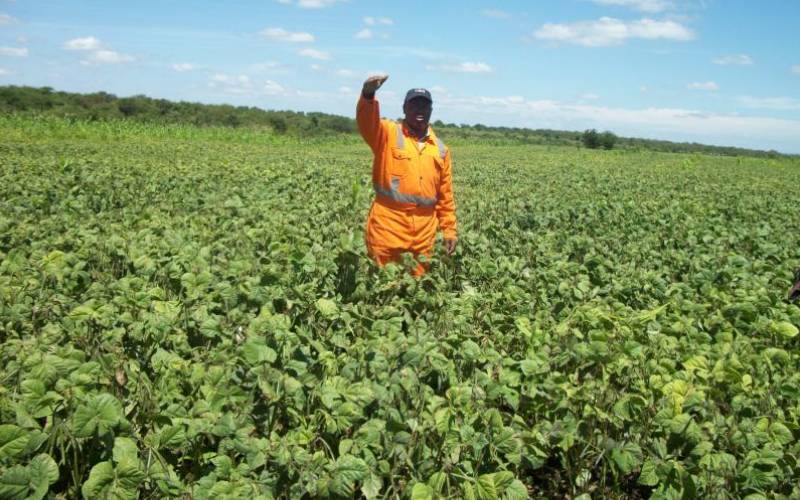×
The Standard e-Paper
Join Thousands Daily

David Thuvi, a green grams (ndengu) farmer at his 70 acre farm at Katoteni in Kitui County. [Philip Muasya, Standard]
Two years ago, majority of farmers in Kitui county went into full blown production of green grams (ndengu) hoping to cash in on good prices promised by the county government. It was at a time that the county government, through governor Charity Ngilu was promoting ndengu farming as a cash crop through an initiative dubbed ndengu revolution.